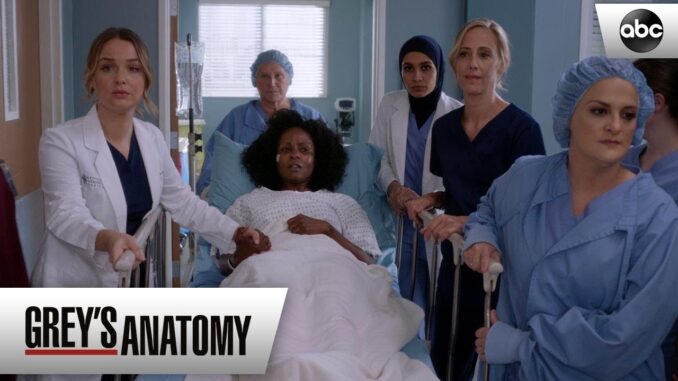
The sterile hum of the E.R. always carries a hidden cacophony beneath its surface: the frantic thrum of a failing heart, the silent scream of unendurable pain, the unspoken pleas for a miracle. In the heart of this organized chaos, bathed in the unforgiving glow of surgical lights, stands Dr. Jo Wilson. It’s in a scene like this – a seemingly ordinary trauma, escalating rapidly into a crisis – that the true steel of her spirit becomes undeniably apparent, revealing precisely why she never, ever gives up.
Picture it: a young patient, mangled after a car accident, lies on the gurney. The air is thick with the metallic tang of blood and the sharp scent of antiseptic. Monitors beep a frantic rhythm, a drumbeat to the unfolding disaster. Other attendings might glance at the stats, hear the weakening pulse, and murmur options for palliative care. But Jo Wilson's jaw is set, her eyes, often soft with empathy, are now narrowed with a singular, fierce focus. Her hands, usually adept and sure, move with an almost desperate precision, searching, probing, refusing to accept the grim prognosis whispered by the machines.
This scene, however, isn't just about medical expertise; it's a stage where Jo's entire harrowing past converges with her present determination. As the patient's vitals plummet, a familiar, icy dread must momentarily touch Jo – not for herself, but for the life slipping away. This isn't just a body on a table; it's a person, vulnerable, dependent, just as she once was. And in that fleeting moment, an echo of her own history resonates. Growing up in a carousel of temporary homes, abandoned and adrift, Jo learned survival not as a concept, but as a visceral daily truth. There was no safety net, no cavalry coming over the hill. If she didn't fight for her next meal, her next shelter, her next chance, it simply wouldn't materialize. Giving up wasn't an option; it was a death sentence, whether literal or metaphorical.
It’s this ingrained, primal refusal to yield that she brings to the patient. Where another doctor might see an impossible odds, Jo sees a challenge, an opportunity to rewrite a grim narrative, just as she had to rewrite her own. The foster system taught her to be resourceful; living out of her car taught her resilience; the trauma of her abusive marriage taught her the absolute necessity of fighting for her own safety and sanity, of clawing her way back from the brink of emotional annihilation. Every single one of those past battles, every scar, every lonely night, has forged an unyielding belief: if there is a choice to fight, you fight.
So, in this critical moment in the E.R., when the chief of trauma might call for time of death, Jo instead calls for a forgotten tool, a nuanced diagnostic, a seemingly impossible surgical maneuver. She isn't just looking at the textbook answers; she's drawing upon an intuitive understanding of the human capacity for endurance, learned firsthand. Her mind races, not just with medical knowledge, but with the grit of a survivor who knows that even the smallest, most overlooked detail can be the key to turning the tide. Perhaps she sees a faint discoloration, feels a subtle difference in tissue resistance, or remembers an obscure case study that others have forgotten. This isn't recklessness; it's a deep-seated conviction born from a life lived on the edge – a conviction that there’s always another angle, always another fight left.
And when, against all odds, the monitor offers a hesitant, then steady, beat, and the patient shows a flicker of response, it’s not just medical success; it’s a vindication of Jo Wilson’s entire existence. This scene shows why she never gives up: because she knows, perhaps more intimately than anyone, what it feels like to be utterly alone, to have the world stacked against you, and to still choose to fight. Her perseverance isn't just a character trait; it's the very core of her being, a hard-won victory etched into her soul, making her not just a brilliant doctor, but a living testament to the indomitable power of the human spirit. She saves lives because she knows, in every fiber of her being, what it costs to save your own.